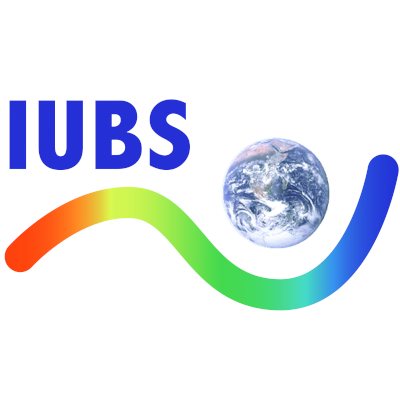“Unifying biology through diversity”
The International Union of Biological Sciences (IUBS), established in 1919, is a non-governmental and non-profit organization comprising of National Academies and international scientific Associations and Societies. IUBS provides a global platform for cooperation and interaction among scientists from all disciplines and nationalities to promote research, training, and education in biological sciences, while advocating access and benefit-sharing of knowledge and resources.
IUBS, a member union of the International Science Council (ISC), is the only international body that represents the entire spectrum of biological sciences. IUBS currently unites more than 110 national, scientific, and institutional members.
Objectives
While IUBS promotes excellence in all topics of Biological Sciences, it aims to understand and find solutions to several scientific questions and to serious and tough challenges, such as the effects of climate change on the Earth, by facilitating collaboration across all disciplines and promoting inputs from science in all policy discussions.
The specific objectives of IUBS are:
- to promote the study of biology — basic and applied, theoretical, observational, experimental, and computational;
- to initiate and facilitate research, education and capacity-building, and other scientific activities that require international and interdisciplinary cooperation;
- to facilitate interdisciplinary and collaborative research and discussions on topics such as evolution, taxonomy, ecology, biodiversity, and other topics that represent unified biology;
- to spearhead efforts related to scientific methods and guidelines for bionomenclature;
- to facilitate dialogues that help in framing policies on the conservation and sustainable use of biodiversity, and access to knowledge and benefit-sharing;
- to study the impact of climate change on biological systems, by leveraging on the expertise within IUBS and by collaborating with other Unions;
- to assess dynamics of ecosystem function and services in the context of climate change to ensure dissemination of the results of cooperative research, in the context of the scientific programs supported by IUBS;
- to support the organization of international conferences on topics of interest to IUBS, and to assist in the publication of the conference reports.
Strategy
The primary goal of the IUBS is basic research in all topics of Biology and its application to ensure sustainable management of the biosphere. Research, analysis, insightful applications, and breadth of education are important elements of the IUBS agenda.
Although many other agencies — local, national, and international — may share these ideals, IUBS is structured to develop new insights along with new partnerships and to host/facilitate conferences that feature highly integrative approaches to solving major problems. The organization has a long history of innovative approaches to improve and sustain the biosphere.
IUBS possesses core strengths in integrative biology that contribute to better understanding of life and its diversity. In this context, IUBS is actively collaborating with the Convention on Biological Diversity (CBD) since 1998. A specific example of its active role is in the organization of meetings of “Science for Biodiversity Forum” at the CBD, framing policies with scientific information for the attainment of the goals of the conventions. IUBS supplements these core strengths by integrating information from other areas of biology, and from the physical sciences and humanities, to help solve major environmental problems.
To align its objectives and activities with the Sustainable Developmental Goals (SDGs) outlined by the United Nations and adopted by all member countries, IUBS actively supports international collaboration in research and education on biodiversity, climate change and its impact on agriculture, marine and terrestrial ecosystems, invasive species, spread of infectious diseases and many other such topics.
As a major emphasis, given the new approach to its goals, IUBS has widened its knowledge base and has expanded its global partnerships to lead a high-profile program on Climate Change Education. IUBS expects to adopt this initiative as a regular program, developing customized pedagogical tools for its individual member countries. This Climate Change Education project will serve as an exemplar program for other initiatives.
To ensure that it remains active and relevant to all member countries, and to attract potential new members, IUBS aims to be more inclusive; its scientific programs include representatives from as many member and non-member countries as possible.
IUBS plans its budget (derived from the dues paid by member nations) and expenditure strategically to ensure that young scientists from all member countries benefit from the conferences and research sponsored by the organization.
- President: L.S. Shashidara
- Vice-President: Le Kang
- Secretary-General: Alexey Alexeevich Kotov
- Treasurer: Santiago Merino
- Executive Director: Nathalie Fomproix
















